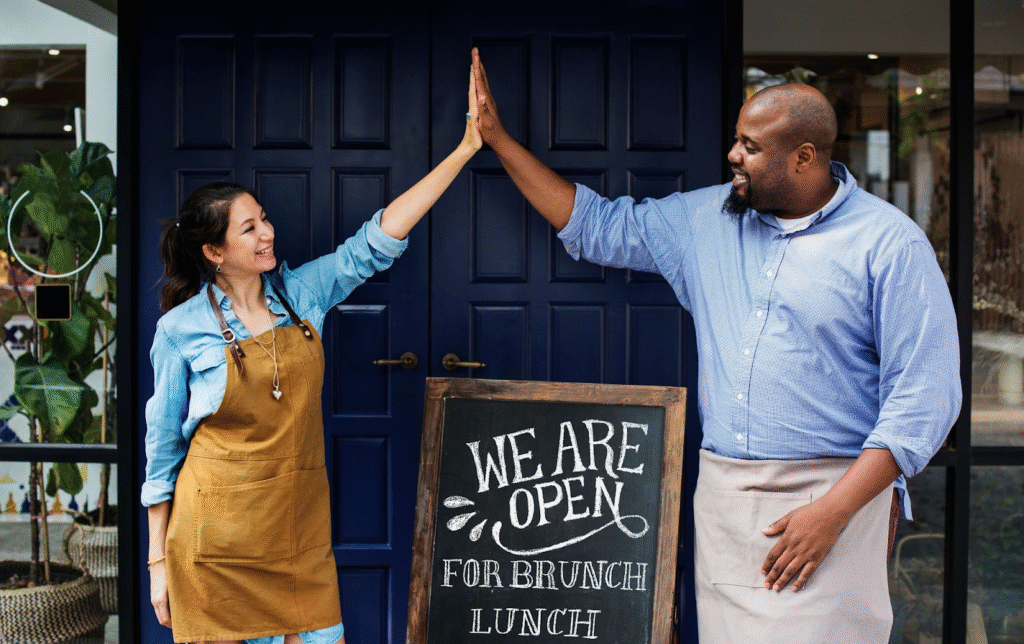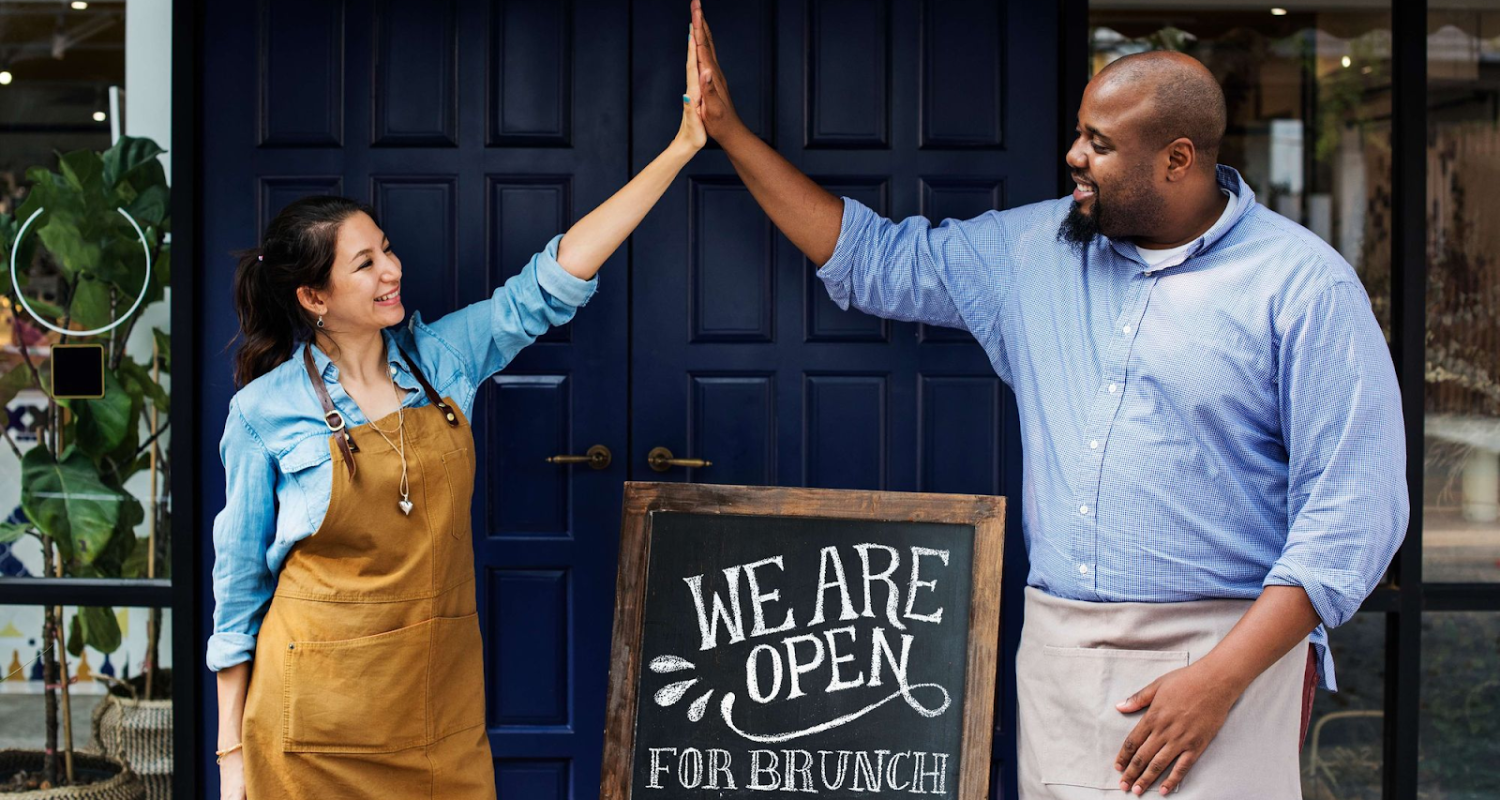Expanding your restaurant business is one of the most rewarding signs of success. It means you’ve created something people love; whether it’s your signature dishes, welcoming atmosphere, or exceptional service. When your first location has become a neighborhood favorite, it’s only natural to consider opening a second one. Maybe you’ve identified a hungry new market across town, or perhaps your existing space can’t keep up with demand. Either way, congratulations are in order.

But let’s press pause for a moment.
While you’re busy hiring new staff, finalizing your new lease, perfecting the opening menu, and selecting the right tile for the bar backsplash, there’s one major business task that too often gets overlooked: updating your insurance for a new restaurant location.
This isn’t just a box to tick—it’s a crucial part of protecting everything you’ve worked so hard to build. Especially if you’re expanding in Florida, where hurricanes, flooding, property damage, and customer liability claims are real and recurring risks, ensuring that your insurance evolves alongside your business is not just smart—it’s absolutely necessary.
In this article, we’ll break down why insurance for a new restaurant location isn’t something to delay, what types of coverage you need to consider, how to manage the costs, and how to avoid common mistakes that could put your expansion at risk.
Why Expansion Demands an Insurance Update
Understanding Why Your Second Location Needs Tailored insurance for a new restaurant.
Opening a second restaurant isn’t just an exciting milestone—it’s a transformational moment in your business journey. But while expansion means growth and new opportunities, it also introduces a new set of risks and responsibilities that your current insurance policy wasn’t built to handle.
Many business owners mistakenly believe they can simply duplicate their existing insurance coverage and move on. In reality, expansion is not a copy-paste operation. It fundamentally changes the structure, exposure, and legal obligations of your business.
This is exactly why updating your insurance for a new restaurant is not just recommended—it’s essential.
Let’s break down the reasons why a second location demands a serious reassessment of your insurance coverage.
1. More Employees = Greater Payroll and Liability Exposure
When you open a second location, you’re not just replicating your menu—you’re also hiring more employees to serve more guests. That automatically increases your payroll, which has direct implications for your Workers Compensation Insurance.
Florida has strict regulations regarding workers comp coverage. If your employee count crosses certain thresholds or if your total payroll increases significantly, your premiums—and your legal obligations—will change.
Each restaurant staff member, whether back-of-house or front-of-house, adds to your overall liability. With more people in the mix, the risk of workplace injuries or claims increases. That’s why your insurance for a new restaurant must account for these additional exposures, rather than assuming your previous policy has you covered.
2. New Location, New Property Coverage Needs
Every commercial property is unique. The risks associated with your second restaurant location will likely differ from those at your original location. Here’s why:
- Geographic Risks: Is your new restaurant closer to the coast or located in a flood-prone area? Florida weather can be unpredictable—hurricane damage and water intrusion are real threats that vary significantly by ZIP code.
- Building Type: A standalone building carries different risks compared to a space inside a strip mall or high-rise.
- Foot Traffic and Layout: A location with more customer volume or outdoor dining introduces new safety and liability concerns.
- Lease Agreements: If you’re leasing the new space, your landlord may require specific types of commercial property coverage.
For all of these reasons, simply applying your original General Liability or Property Insurance policy to the new address won’t work. You need dedicated, address-specific coverage designed for the conditions of this new site. That’s what makes insurance for a new restaurant so vital—it ensures that your new property is properly assessed and protected.
3. Your Business Owners Policy (BOP) May Not Automatically Cover Multiple Locations
A Business Owners Policy (BOP) is a convenient and cost-effective way to bundle key coverages—such as General Liability, Property Insurance, and Business Interruption coverage—into one manageable policy. However, many business owners don’t realize that a BOP is typically underwritten for a single location.
If your current BOP was created when you only had one restaurant, it likely doesn’t extend to your second one. That means:
- You could be operating without coverage at your new location.
- A claim made from the second site could be denied, leaving you responsible for all damages.
- Your policy limits may be inadequate when split between two operations.
As part of your expansion strategy, it’s crucial to revisit your BOP and either amend it to include the new restaurant or set up a separate policy. A licensed commercial insurance specialist can guide you in structuring your coverage correctly—without duplication or gaps.
4. Local Regulations May Differ—And So Must Your Coverage
One of the most overlooked aspects of restaurant expansion is that regulatory requirements vary by city and county, particularly in a state as diverse. What was required in Miami might not satisfy the compliance checklist in Tampa or Orlando.
Some examples:
- Food Handling Certifications: Each jurisdiction may have different health department standards.
- Fire Safety Protocols: Local building codes and fire department inspections may require you to install or upgrade fire suppression systems.
- Alcohol Licensing: Serving alcohol in one county might require different liability insurance or licensing fees than another.
- Signage and Exterior Modifications: Local zoning laws could affect your storefront signage, which impacts your property value and liability exposure.
Because of these differences, you can’t rely on a one-size-fits-all approach to risk management. Instead, tailor your insurance for a new restaurant to reflect local regulations and requirements. Doing so protects you from costly fines, claim denials, or even shutdowns due to noncompliance.
5. Your Risk Profile Just Got More Complex
Opening a second restaurant means doubling your operations, your assets, and your liabilities. But from an insurer’s perspective, it also means you now have a more complex risk profile.
- If one location experiences a natural disaster or major claim, it could impact your ability to operate both locations.
- A major claim from the new location could increase your premiums for the entire business.
- A lawsuit, data breach, or health code violation at the second site could affect your brand’s reputation across the board.
In short, your second location isn’t an isolated unit—it’s now part of a multi-location network that needs coordinated, comprehensive protection. Insurance for a new restaurant should reflect this growth by offering scalable, flexible, and location-specific coverage that still supports your overall business goals.
Talk to an Insurance Agent Who Knows Restaurant Growth
When it comes to protecting your expanding restaurant business, choosing the right insurance agent can make all the difference. Not all agents have the expertise or experience to properly handle the complexities of multi-location restaurant insurance. That’s why talking to an insurance agent who truly understands restaurant growth—especially in Florida—is an essential next step in updating your insurance for a new restaurant.
Why You Need a Specialist, Not Just Any Agent
A generic insurance agent may offer you standard commercial policies, but they might miss crucial industry-specific nuances that affect your coverage needs. Restaurants face unique risks like food safety liability, liquor liability, equipment breakdown, and employee injuries in busy kitchens. Multiply that risk by opening multiple locations, and the picture becomes even more complex.
A specialist agent with a focus on restaurant insurance understands these intricacies. They can:
- Assess Regional Risks: Florida’s climate brings hurricanes, tropical storms, and flooding risks that can vary widely by region. A local expert will know how to tailor your policies to cover these hazards effectively.
- Navigate State-Specific Regulations: Labor laws, workers compensation requirements, and health department standards differ by state—and sometimes by county or city. An agent experienced with Florida’s legal landscape will ensure you stay compliant.
- Design Umbrella and Multi-Location Coverage: Managing liability limits across multiple sites can be complicated. Your agent should know how to structure umbrella policies and multi-location Business Owners Policies (BOP) to provide seamless protection without unnecessary duplication or gaps.
Questions to Ask Your Insurance Agent
Before you commit to any policy, use this conversation to clarify exactly how your new location will be covered. Important questions include:
- Do I need a separate policy for each location, or can I bundle multiple restaurants under one multi-location plan?
Understanding this can save you money and simplify your administration. - How will workers compensation be handled across multiple sites?
Payroll and employee classifications may vary, affecting premiums. - What additional coverages or endorsements should I consider as I expand?
This may include liquor liability, employment practices liability, or cyber insurance for digital ordering systems. - How are natural disasters like hurricanes and floods covered?
Florida’s weather risks demand careful review of property and business interruption policies.
Pro Tip: Work with we, Commercial Insurance Services (CIS)
If you’re growing your restaurant footprint, CIS specializes in helping businesses just like yours navigate the complexities of expansion. Our deep expertise in insurance for a new restaurant means they can tailor coverage plans that grow as you do—ensuring you’re protected at every step.
By partnering with a knowledgeable local agent CIS, you get more than just policies—you get strategic guidance that helps you avoid costly mistakes, manage risk efficiently, and keep your focus where it belongs: on serving great food and growing your brand.
Update or Expand Your Business Owners Policy (BOP)
If you already have a Business Owners Policy (BOP), you’re likely benefiting from a convenient bundled insurance plan that typically includes key coverages such as:
- Property Insurance to protect your physical assets,
- General Liability Insurance to cover claims related to bodily injury or property damage,
- Business Interruption Coverage that helps replace lost income if your restaurant must close temporarily due to a covered event.
Adding a New Location to Your Existing BOP
When you open a second restaurant, a common question is whether you can simply add the new location under your current BOP or if you need to purchase an entirely new policy.
Your insurance provider might allow you to add the new restaurant address to your existing policy, but this depends on several factors, including:
- Distance Between Locations: If the new restaurant is close by, insurers are more likely to include it on the same BOP. However, locations that are far apart, or in different cities or counties, might require separate policies.
- Ownership and Operations: If the ownership and management structure remain the same, bundling locations under one policy is usually easier. But if you’re operating the new restaurant under a different business entity or with different management, separate coverage may be necessary.
- Risk Profile Differences: The specific risks associated with the new site play a big role. For example, a beachfront restaurant exposed to hurricanes, flooding, or saltwater corrosion will carry different insurance risks than an urban location. Similarly, if the new site offers live entertainment or liquor service, this can increase liability exposures and may require additional or separate coverage.
Don’t Forget to Update Your BOP Details
Beyond just adding the location, your BOP needs to reflect changes that come with expansion, including:
- Increased Revenue Projections: More locations usually mean higher sales volume, which affects premiums and coverage limits.
- New or Different Equipment: Your second restaurant might use different kitchen appliances, POS systems, or even specialty furniture—items that need to be insured accurately.
- Rise in Inventory Volume: Stocking two locations increases your inventory exposure, so make sure this is factored into your property coverage.
Failing to update these details can lead to underinsurance, which might mean claims aren’t fully covered when you need them most.
Why This Step Is Crucial for Insurance for a New Restaurant
When expanding your restaurant business, the BOP is often the foundation of your insurance portfolio. Getting it right—whether by updating your current policy or adding a new one—ensures you have comprehensive protection tailored to your growing operations.
If you’re unsure about how to navigate these changes, consulting with an expert in insurance for a new restaurant can save you headaches and financial risk down the line.
Ready to Get Covered?
Connect with us on social media to stay informed and empowered, or reach out today for a free, no-obligation quote tailored to your business. Your peace of mind starts with the right coverage.
Visit https://usa-cis.com/ today to learn more or give us a call now to speak with one of our friendly agents.
- Phone: (321) 830 – 0006
- Email: info@usa-cis.com
- Web: https://usa-cis.com
Facebook: Commercialize Insurance Services








